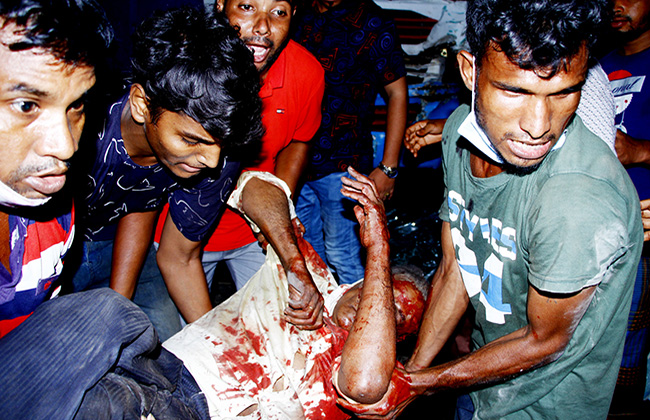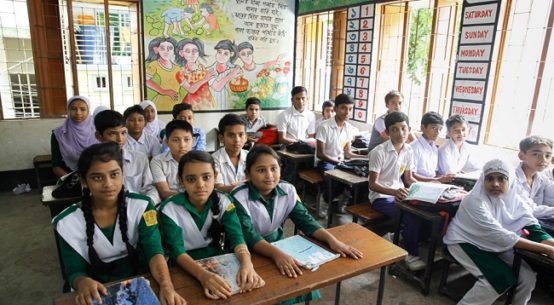
The explosion at Moghbazar which killed several people shows the fragility of life and living anywhere. In Bangladesh it’s even more so and in a city, where staying alive is a full time job, both life and living have different meanings. It’s easy to die and is entirely a personal matter. The result is a lack of safety accepted as natural by all.
Hence, the much vaunted right to life concept doesn’t apply to Bangladesh and even less so to Dhaka. Deaths therefore by “accidents” or unnatural deaths have become commonplace and an everyday affair. Life could well be an accidental affair.
One reason why safety has weakened is our focus and priority. Any discussion on public issues tend to be on concepts like human rights, truth, law and order etc The idea is that these are missing so there is suffering. What is not said is that they constitute the outer layer and all are products of the core which is the state structure. And it’s the nature of this structure that determines the rest, the functioning of the system.
The system is what is not discussed enough in Bangladesh as we prefer traditional and probably not as relevant as political issues. Over the years, the history of political parties has been weak. No regimes are narratives of political success. Much of the functions are dependent on two institutions, the bureaucracy and the private business sector. The army as the most organized remains at the top but day to day functioning with the public is with these two. Of them, the amlas represent the formal administrative will of the state.
What is asked of them is loyalty which they are good at but not efficiency. This has been the indicator of the national bureaucracy since birth. Over time many amlas have even gone into politics, many doing both at once. The last elections were a good example of that when many declared public loyalty while in service. During anti-incumbency upsurges, amlas would join political movements, very prominent being in 1990.
This is fine and the system is heading towards that blend. The problem is the lack of efficiency which is obvious in every sector. Since postings and promotions are dependent on connections, the performance takes a lower seat. Corruption shouldn’t be seen as a crime anymore but more to do with payments for services rendered. Its tolerance is necessary if the system is to function.
Corruption is fine but it can exist with performance and efficiency. That is often missing. So much has been said about the matter that its sting is lost. As a result few discussions are held on efficiency but more about issues like rule of law and human rights. Is it beyond the capacity of the present system to deliver them?
The roots of the Moghbazar explosion didn’t lie in the neglect of the people who were supposed to look after rules, regulations and safety. It lies in the inability of the system to ensure safety because it’s beyond their efficiency capacity.


